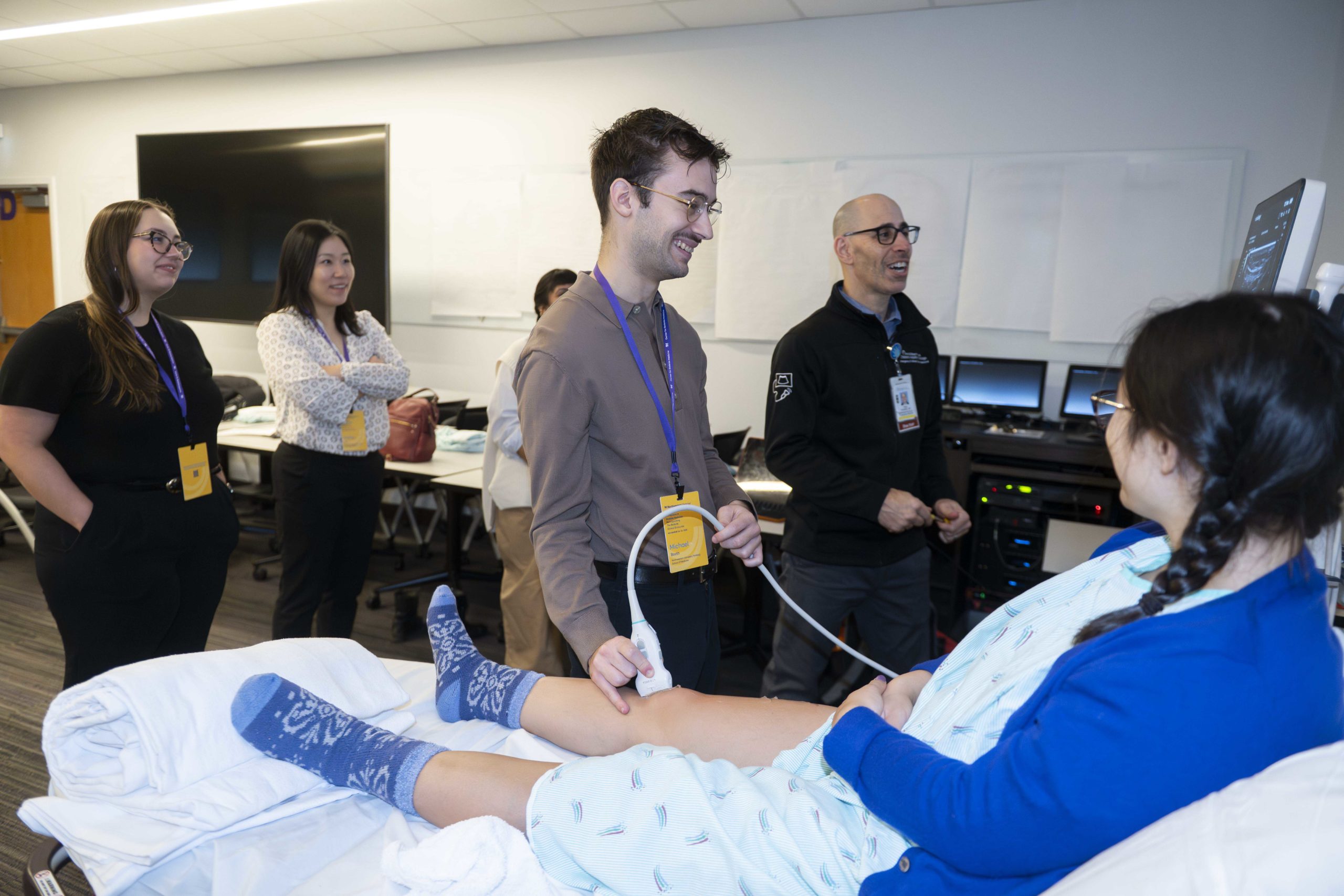Tag: Faculty
-

Northwestern Accepting Nominations for $200,000 Nemmers Prize in Medical Science
Northwestern University is accepting nominations for its $200,000 Mechthild Esser Nemmers Prize in Medical Science, a biennial prize that will be awarded in Fall 2022.
-

Health Equity Week Shines Light on Disparities
McGaw Medical Center hosted the first annual Health Equity Week, a series of panel discussions highlighting the roots of healthcare disparities and how clinicians and scientists are working to find solutions.
-

Bunta Honored as ‘Pillar of the Orthopaedic Profession’
Andrew D. Bunta, ’67 MD, ’74 GME, associate professor of Orthopaedic Surgery, has been named a “Pillar of the Orthopaedic Profession” by the American Orthopaedic Association.
-

Krainc to receive $9 Million, 8-year NIH Grant
Dimitri Krainc, MD, PhD, has received a Research Program Award grant from the National Institute of Neurological Disorders and Stroke (NINDS).
-

New Center for Pathogen Genomics and Microbial Evolution
The Institute for Global Health (IGH) has established the Center for Pathogen Genomics and Microbial Evolution which will apply lessons learned during the COVID-19 pandemic to the tracking and prevention of future threats.
-

Bilaver and Epstein Named New Leaders of Health Sciences Integrated PhD Program
Lucy Bilaver, PhD, associate professor of Pediatrics, has been named director of the Health Sciences Integrated PhD program, while Richard Epstein, PhD, MPH, research professor of Psychiatry and Behavioral Sciences, has been named associate director.
-

Feinberg Medical Student Honored with Prestigious U.S. Public Health Service Award
Hooman Azad, a student in Feinberg’s MD/MPH degree program, has been awarded a 2021 Excellence in Public Health Award from the U.S. Public Health Service.
-

Investigators to Explore Circadian Rhythms in Cancer and Aging
A team of Northwestern Medicine investigators led by Rina Fox, PhD, MPH, received a Cancer and Aging Translational Bridge Award to investigate circadian disruption in lymphoma.
-

Northwestern Named Network of the National Library of Medicine Evaluation Center
Galter Health Sciences Library and Learning Center has been named the National Evaluation Center for the Network of the National Library of Medicine, a five-year, $4 million award.
-

Spring Honored with SBM Distinguished Scientist Award
Bonnie Spring, PhD, chief of Behavioral Medicine in the Department of Preventive Medicine, has received the 2021 Distinguished Scientist Award from the Society of Behavioral Medicine.






